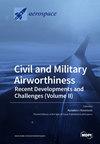太阳帆在日心交点飞越任务中的最佳性能
IF 2.1
3区 工程技术
Q2 ENGINEERING, AEROSPACE
引用次数: 0
摘要
太阳帆是一种从太阳辐射压力中提取动量的无推进器推进系统。它们由一个大的超薄薄膜(通常是镀铝膜)组成,反射太阳的入射光子,产生空间导航的推力。本研究的目的是调查基于太阳帆的航天器在进行二维日心转移到位于以太阳为中心的指定环形区域内的黄道惯性点时的最佳性能。与欧空局的彗星拦截器任务类似,这种转移概念可用于拦截接近地球轨道的潜在天体,如长周期彗星。具体来说,假设太阳帆转移完全发生在黄道面上,与最近的研究类比,探索的飞越点在距离太阳 0.85au 至 1.35au 之间。太阳帆的日心动力学采用经典的两体模型进行描述,假设航天器从地球轨道(假定为圆形)出发,并采用理想的力模型来表示太阳帆的推力矢量。最后,没有对飞越时的到达速度施加限制。数值模拟结果表明,太阳帆是实现这些特定日心转移的一个有吸引力的选择。本文章由计算机程序翻译,如有差异,请以英文原文为准。
Solar Sail Optimal Performance in Heliocentric Nodal Flyby Missions
Solar sails are propellantless propulsion systems that extract momentum from solar radiation pressure. They consist of a large ultrathin membrane, typically aluminized, that reflects incident photons from the Sun to generate thrust for space navigation. The purpose of this study is to investigate the optimal performance of a solar sail-based spacecraft in performing two-dimensional heliocentric transfers to inertial points on the ecliptic that lie within an assigned annular region centered in the Sun. Similar to ESA’s Comet Interceptor mission, this type of transfer concept could prove useful for intercepting a potential celestial body, such as a long-period comet, that is passing close to Earth’s orbit. Specifically, it is assumed that the solar sail transfer occurs entirely in the ecliptic plane and, in analogy with recent studies, the flyby points explored are between 0.85au and 1.35au from the Sun. The heliocentric dynamics of the solar sail is described using the classical two-body model, assuming the spacecraft starts from Earth orbit (assumed circular), and an ideal force model to express the sail thrust vector. Finally, no constraint is imposed on the arrival velocity at flyby. Numerical simulation results show that solar sails are an attractive option to realize these specific heliocentric transfers.
求助全文
通过发布文献求助,成功后即可免费获取论文全文。
去求助
来源期刊

Aerospace
ENGINEERING, AEROSPACE-
CiteScore
3.40
自引率
23.10%
发文量
661
审稿时长
6 weeks
期刊介绍:
Aerospace is a multidisciplinary science inviting submissions on, but not limited to, the following subject areas: aerodynamics computational fluid dynamics fluid-structure interaction flight mechanics plasmas research instrumentation test facilities environment material science structural analysis thermophysics and heat transfer thermal-structure interaction aeroacoustics optics electromagnetism and radar propulsion power generation and conversion fuels and propellants combustion multidisciplinary design optimization software engineering data analysis signal and image processing artificial intelligence aerospace vehicles'' operation, control and maintenance risk and reliability human factors human-automation interaction airline operations and management air traffic management airport design meteorology space exploration multi-physics interaction.
 求助内容:
求助内容: 应助结果提醒方式:
应助结果提醒方式:


